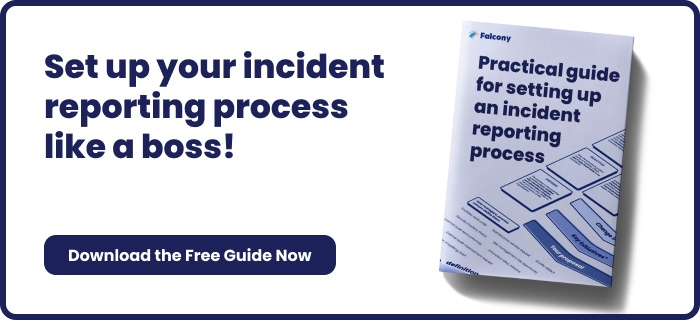Identifying the 9 Most Common Near Misses in the Chemical Industry
Every day in the chemical and petrochemical industries, workers handle hazardous materials, operate complex machinery, and navigate potentially risky environments.
Despite stringent safety protocols, near misses—incidents that could have resulted in serious harm or damage but didn't—are not uncommon. Recognizing these near misses is crucial for preventing future accidents and ensuring the well-being of workers and the surrounding community. Here are nine of the most common near misses in the chemical and petrochemical industry:
Equipment Malfunctions
Malfunctioning machinery or equipment failures can lead to near misses, such as leaks, fires, or explosions. Regular maintenance and inspections are essential to prevent these incidents.
Chemical Spills
Accidental spills of hazardous chemicals can occur during transportation, storage, or handling. Quick containment and cleanup procedures are vital to minimize the risk of exposure and environmental damage.
Unsafe Work Practices
Neglecting safety procedures, such as improper handling of chemicals, not wearing personal protective equipment (PPE), or bypassing safety protocols, can lead to near misses that may escalate into accidents if left unchecked.
Inadequate Training
Insufficient training or lack of knowledge about handling hazardous materials and equipment can increase the likelihood of near misses. Proper training programs should be implemented and regularly updated to ensure workers are equipped with the necessary skills and knowledge.
Poor Housekeeping
Cluttered work areas, spills left unattended, or improper storage of materials can create hazardous conditions, increasing the risk of near misses such as slips, trips, and falls.
Ignored Warning Signs
Ignoring warning signs, alarms, or safety alerts can result in near misses going unnoticed until it's too late. Promptly investigating and addressing any safety concerns or alerts is crucial to preventing potential accidents.
Pressure Buildup
Pressure-related incidents, such as overpressurization of vessels or pipelines, can lead to near misses or catastrophic failures. Regular monitoring and maintenance of pressure systems are essential to prevent these incidents.
Human Error
Mistakes made by workers, such as miscommunication, fatigue, or complacency, can contribute to near misses. Encouraging a culture of safety, where workers feel comfortable reporting errors and addressing concerns, can help mitigate these risks.
Lack of Emergency Preparedness
Inadequate emergency response plans or failure to conduct regular drills can exacerbate the impact of near misses, potentially leading to severe consequences in the event of an actual emergency. Regular training and drills are essential to ensure workers are prepared to respond effectively to any situation.
Conclusion
By identifying and addressing these common near misses, companies in the chemical and petrochemical industry can proactively improve safety measures, mitigate risks, and create a culture of safety where workers are empowered to prioritize their well-being and the safety of their environment. Preventing near misses is not only a legal and ethical responsibility but also essential for the long-term success and sustainability of the industry.
If you're looking for a platform to collect more data to monitor your organisation's incident reporting practices, Falcony | Observe have you covered. You can find more information on our website or test out our 30-day free trial:
We are building the world's first operational involvement platform. Our mission is to make the process of finding, sharing, fixing and learning from issues and observations as easy as thinking about them and as rewarding as being remembered for them.
By doing this, we are making work more meaningful for all parties involved.
More information at falcony.io.

Related posts
8 Typical Unsafe Acts in the Chemical and Petrochemical Industry
The chemical and petrochemical industry operates within a high-risk environment where safety is...
Seven types of Accidents in Chemical Industry
The chemical and petrochemical industry plays a crucial role in modern society, providing various...
7 Unsafe Conditions in the Chemical and Petrochemical Industry
While safety protocols and regulations are in place, unsafe conditions within facilities can still...





